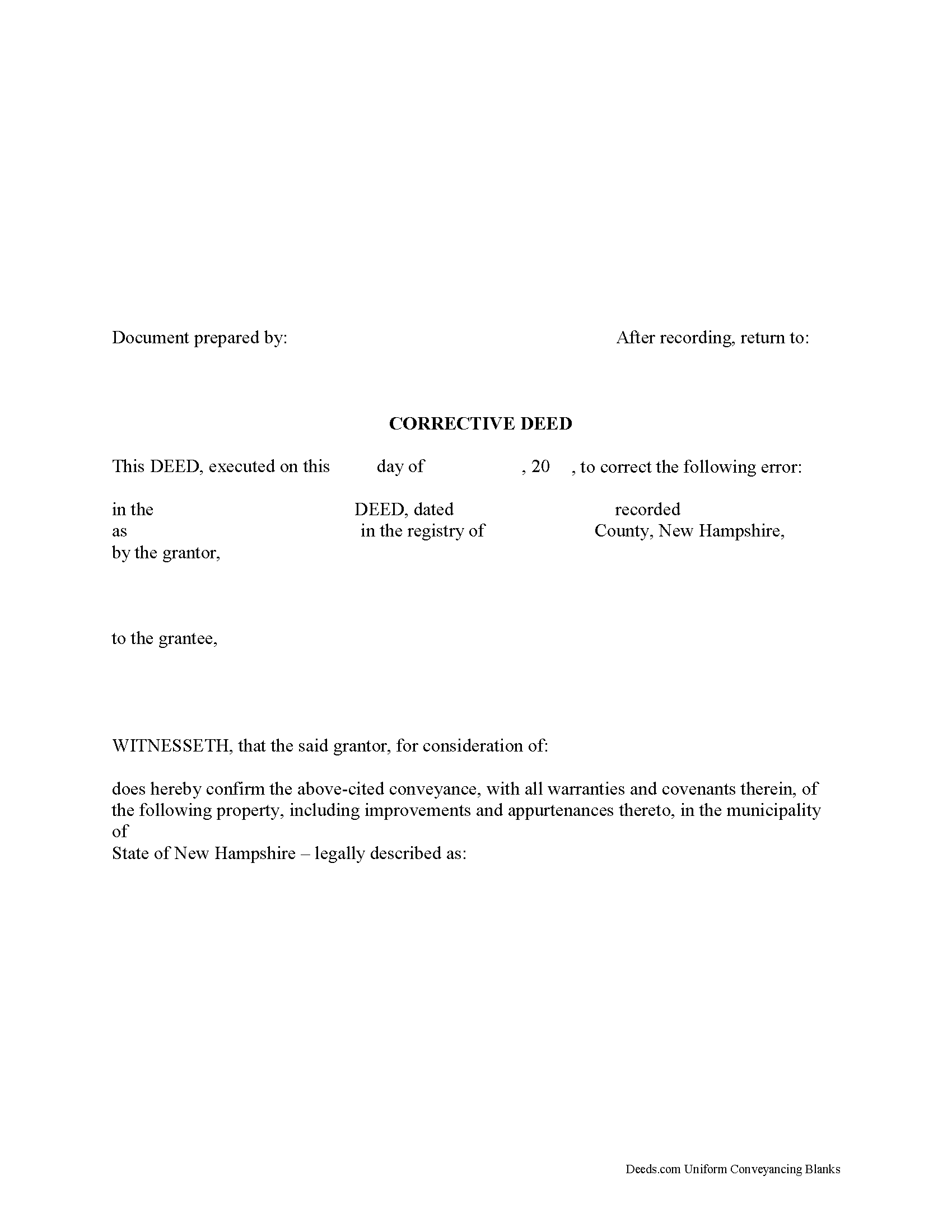Download New Hampshire Correction Deed Legal Forms

New Hampshire Correction Deed Overview

Use the corrective deed to correct an error in a previously recorded deed of conveyance in New Hampshire.
Correcting an error in a recorded deed helps prevent problems that might arise when the current owner tries to sell the property. The best method for correction is to prepare and record a new document, a so-called corrective deed. This document does not convey title; instead, it confirms the prior conveyance of the property.
Apart from supplying the correct information, the new deed must state the reason for correcting and reference the prior deed by title, date, and recording number. It must be signed by the original grantor, confirming the earlier conveyance to the original grantee. Generally, corrective deeds are used to address minor errors in a deed, such as typos, accidentally omitted suffixes or middle initials in names, and other minor omissions. A defect in the acknowledgment might also be corrected with such a deed. When in doubt about the gravity of an error, consult with a lawyer.
For certain types of changes, a correction deed may not be appropriate. Adding or removing a grantee, for example, or changing the manner in which title is held, or making material changes to the legal description, especially deleting a portion of the originally transferred property, may all require a new deed of conveyance instead of a corrective deed. When correcting the legal description, both the grantor and the grantee should sign the corrective deed to avoid any doubt regarding the conveyed property.
(New Hampshire CD Package includes form, guidelines, and completed example)